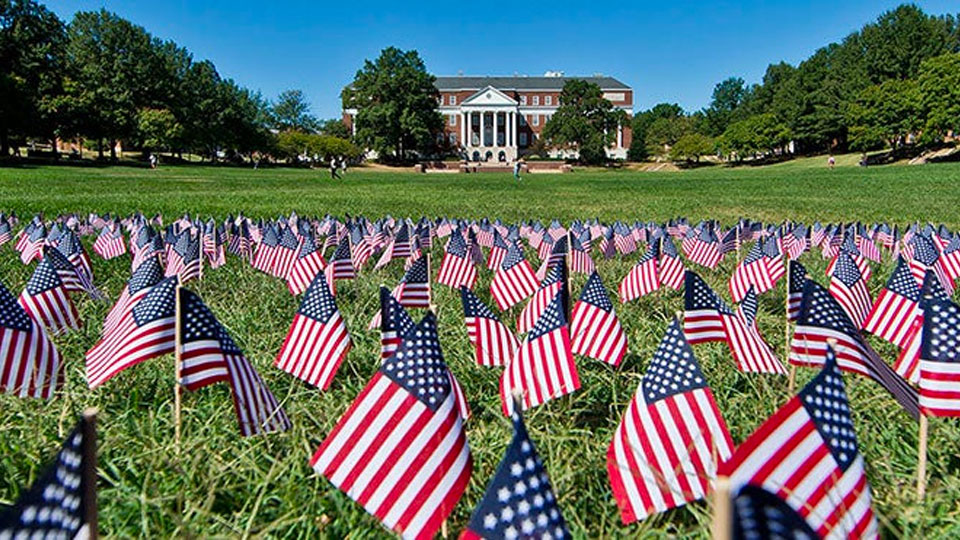Centers & Initiatives
Pioneering business research can prepare students to be transformational business leaders, and equip companies to transform themselves and their markets.
At the Smith School we have created a cluster of Centers of Excellence that serve as the intersection of scholarship and the marketplace, putting breakthrough research at the service of students and companies. Each of our centers immerses our students in complex and evolving marketplaces in which success depends on critical thinking, creativity and entrepreneurship.
We have also added exciting new Initiatives to further augment the learning experience, align with industry and government trends, and chart the future of business.
Centers

The Center for Artificial Intelligence in Business pioneers AI research and outreach. With a focus on human judgment and creativity, it fosters safe, innovative products and services through intentional AI-enabled design and governance frameworks.
The Center for Excellence in Service (CES) is an academic research center with a network of Smith faculty members who are thought leaders in service marketing and management.

The Center for Financial Policy leverages the Smith School’s world-renowned faculty, leading research, and proximity to Washington, D.C. to promote a collaborative exchange of ideas on the key issues that affect financial markets.
The Center for Global Business (CGB) is the driver of internationalization and global mindset education at the Smith School and a preferred partner for international commerce in the state of Maryland, specifically in regard to training and supporting students, companies, and current and future business leaders to engage successfully in global business.
The Center for Social Value Creation embodies a passionate mission: to educate, engage and empower the Smith community and the world through thought-provoking dialogue, thought leadership, and hands-on experience.
At the Dingman Center, we create an inclusive environment where we educate, empower and equip students with the business skills needed to be an entrepreneur and the resources necessary to make their business ideas a reality.
The guiding principle for the Ed Snider Center is that social progress is born of free and creative individuals who, driven by self-motivation, passion, and a positive approach to trading value for value, make the world a better place.
The Supply Chain Management Center at the Robert H. Smith School of Business is dedicated to conducting research and education designed to further the discipline of supply chain management.
Initiatives
Expanding understanding of business analytics and relevant careers, the Robert H. Smith School of Business runs the Smith Analytics Consortium (SAC). A partnership between industry and Smith’s diverse, inclusive community, the Consortium serves as a central hub for networking, thought leadership, experiential learning, co-curricular activities and collaboration opportunities enhancing the Smith student experience and giving back to the business community.

Promoting veterans as strategic assets for a united economy.

The imperatives facing America's government and market leaders have rarely overlapped with the complexity they do today. At the Smith School, we aim to help with new programs and partnerships to promote the future of U.S. public-private talent, training, and research.
Corporate risk officers are grappling with a host of nontraditional risks associated with and ranging from cyber to climate. The Smith Enterprise Risk Consortium recognizes these emerging risks and endeavors to address them through research, tools and education.
News
Beijing, China September 13, 2006 The University of Marylands Robert H. Smith School of Business, a leading provider of Executive MBA programs in China, today announced that it has partnered with CCTV, Chinas national television network, to deliver the Win in China Smith School Business Plan Competition.
The final winners of the Second Annual China Business Plan Competition were announced on September 13, 2006. The announcement of the three winning teams is the culmination of the year-long national competition, which began with nearly 150 entries. Howard Frank, dean of the Smith School and Mr.
The final winners of the Second Annual China Business Plan Competition were announced on September 13, 2006. The announcement of the three winning teams is the culmination of the year-long national competition, which began with nearly 150 entries. Howard Frank, dean of the Smith School and Mr.
Beijing, China June 27, 2006 Maryland Secretary of State Mary D. Kane, leading a state higher education delegation in China, today announced the 20 semi-finalists of the second annual China Business Plan Competition, sponsored by the University of Marylands Robert H. Smith School of Business.
The Smith School on June 27, 2006 announced the 20 semi-finalist teams in the schools second annual China Business Plan Competition during a news conference in Beijing. With many of the contestants in the audience, the names of the semi-finalists were read by Maryland Secretary of State Mary D.
On June 27, Maryland Secretary of State Mary D. Kane will help the Smith School announce the 20 semi-finalists of the second annual China Business Plan Competition at the Zhongguancun Wangjing Science Park in Beijing, China.
On May 19, 2006 the Dingman Center for Entrepreneurship hosted the first Cupids Cup business competition for student-run startups at the Robert H. Smith School of Business.
College Park, Md. May 16, 2006 The University of Marylands Robert H. Smith School of Business today announced that it has received a Center for International Business Education and Research (CIBER) grant that awards the school a total of $1.42 million over four years from the U.S. Department of Education.
College Park, Md. April 28, 2006 - The Robert H. Smith School of Business, University of Maryland today announced that Melissa K. Carrier has been named to the newly created position of associate director at the Dingman Center for Entrepreneurship.
College Park, Md. April 17, 2006 For anyone who uses just half the buttons on their cell phone, or has spent hours poring over a new users manual only to give up in frustration, recent research from the University of Marylands Robert H. Smith School of Business explains why too many product features result in a phenomenon called feature fatigue.